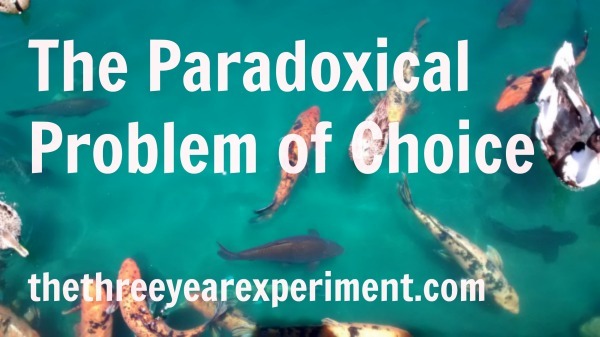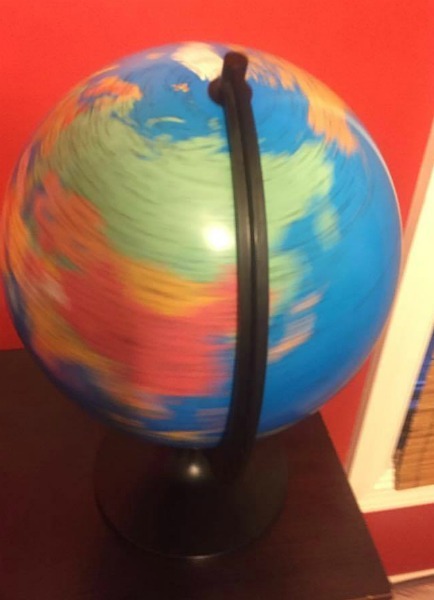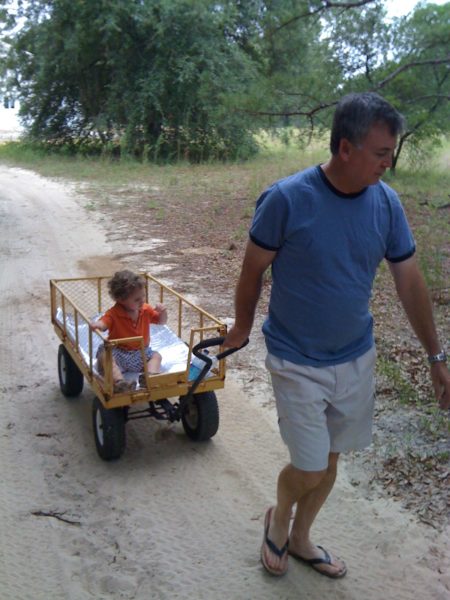In this great big world of ours, we have many options. We could live virtually anywhere. So why don’t we? Why is it that we get trapped in a city we don’t really care for, doing a job that’s not our favorite, fulfilling the expectations that society has for us, but that aren’t our own?

I have a friend who’s lived all over the world. She has lived on four continents in the fifteen years that I’ve known her. And yet even she and her family are debating where to live next, now that she’s tied to a job in Europe when their home was in Asia. Should they stay in Asia? Should they move to Europe? What would be best for her husband’s business? What would be best for their daughter?
Tons has been written about decision fatigue, busyness, and the lack of focus associated with always being connected to the internet.
We know that too many options, in whatever form they take, produce paralysis.
What to Do First?
This is definitely true for me. On a recent Saturday, I had absolutely nothing planned, but so many household chores rattling around in my head that needed doing–washing laundry, making banana bread, taking the recycling, fixing a broken latch. In the end, I think I made my bed (yay for habits). I felt so paralyzed by indecision of what to tackle first, I didn’t do anything.
The famous jam study from the 1990s gave consumers the choice between six jams and thirty varieties. While participants sampled more jams from the thirty-variety booth, they made one-third more purchases when given just half a dozen choices. Studies show that when we’re presented with more than seven options (plus or minus two), we freeze and choose nothing.
Interestingly enough, we are hardwired to conceptualize the number three from infancy. Yes, that’s right. Newborns can “count” to three. Researchers have put out three toys in front of a nursing newborn. They take one away, and the newborn sucks harder. They’re repeated the test with 6-month olds, and have shown that babies instinctively conceptualize one-to-one correspondence with the numbers one, two, and three.
And as adults, our brains can keep about, yep, that’s right–seven ideas, plus or minus two, at one time. So five to nine choices is really all we can keep in our minds at one time–that’s the limit of our brain’s working memory. (For more information on this fascinating phenomena, check out the Wiki site on the famous 1956 paper).
So it seems that we are not created for this modern world of overwhelming choice.
Thomas Friedman explores this idea in his latest book, Thank You for Being Late. He calls our time the Age of Acceleration, a time when technological innovations, globalization, and climate change are changing our world faster than the capacity of the average human being and our societies to adapt.
The rate of change in our world has currently outpaced our ability to keep up.
Don’t you feel the truth of that profound insight? I certainly do. I constantly have access to dozens of ideas, pieces of information, and perspectives, all accessed within an hour of each other! All I have to do is scroll through Facebook or open my News tab on my iPhone. Just yesterday, I read about a new photography book about the uber wealthy from the photographer who directed The Queen of Versailles documentary. I saw videos for three new recipes I could try. I read how teenagers today have the same level of anxiety because of all of the information they’re privy to as mental health patients from the 1970s.

Time to Process
But I don’t have the time or space to synthesize these ideas. I don’t regularly get up from my desk and take a walk, thinking about the different perspectives on the Pope’s TED talk, for example. There isn’t time. I’d be getting up and walking around multiple times a day to process and reflect upon all the information I receive.
Mr. Money Mustache operates on an information diet. The idea is that you limit your exposure to newspapers, news channels, and other media outlets, since we have such limited control over the outcomes of those stories. When you watch the news ad infinitum, it just produces anxiety because you begin to adopt the worldview that you’re unable to influence the outcomes of anything on the planet. But that is patently untrue. If we all can focus on our more immediate lives, on the parts of the world we can control–what MMM and others call your Circle of Influence, then we can reclaim our control over our worlds.
In 2007, I adopted a similar philosophy. I haven’t been regularly reading or watching the news. (It’s amazing how people will fill you in on the pieces of news you need to know–I haven’t missed anything big, but if I have, my life hasn’t been affected by it).

Unfortunately, over the last year I’ve fallen off the wagon of my information diet. With the 2016 election, I followed the headlines way to closely. I watched the news a lot. My well-being suffered for it. I had very limited control over what I was watching, and I became angry and frustrated.
We humans simply were not made to keep up with the goings-on of the other 7 billion people on the planet. While social media is an incredible connectivity tool, and our world has benefitted enormously from the innovations spawned from such unrestricted access to one another’s ideas, I would argue that on a personal level we have to find ways to limit our exposure to overwhelming choice so we don’t become, well, overwhelmed.
Because, just like the jam study, when we have too many choices, we don’t take longer to make a decision. We make no decision at all.
So how in the world can you make a decision about what’s most important to you when confronted with almost limitless choice?
Again, I believe the key is (artificially) limiting the number of choices that you give yourself.
First of all, that means defining your priorities. With so many people telling you what they think your priorities should be, it might be hard to drown out the noise. It definitely is for me. But if you can find the time, space, and quiet to figure out what’s important to you, then you can make sure your choices align with those goals.
For us, our guiding principles are:
- Family
- Travel
- Financial Independence
We re-evaluate those goals every year because they might change. Our values may shift over time, or they may shift temporarily (for example, we may choose to spend money for travel over a couple of years at the expense of financial independence. Or as the kids hit high school, we may decide saving for college trumps big, long trips).
Setting yearly goals gives us a way to artificially limit our choices to those that work for the current year. We have to ruthlessly prioritize. This year, we are choosing to focus on paying off our last remaining debt, getting better at saving, and doing major house projects.
Information Diet
It’s time for me to restrict my own access to information flow by eliminating my Facebook app from my phone, charging my devices in my office rather than my bedroom, and doing things to limit my ability to mindlessly scroll (this free Facebook Newsfeed Eradicator Chrome plugin has worked great for me on my desktop for the past year). Sounds like a great May habit to work on. When I limit my access to news stories and trending articles, the level of noise in my head decreases.
Reading books is a way to spend focused time on a topic that’s important. When we choose to read books, we can plumb the depths of a topic that appeals to us. We can reject surface-level skimming and become deeply absorbed in a topic. There are fascinating, well-written articles about a myriad of topics all over the internet. I, personally, spend lots of time reading about PF through bloggers’ articles. But when you’re skimming from topic to topic, reading this article in The Atlantic and that article in The Economist, you’re bombarded with opinions and ideas from so many different fields and topics that it becomes impossible to focus.
In summary, combating paralysis when we’re faced with almost limitless choices comes down to:
- Taking the time to set our priorities. What’s really important to you?
- Setting and regularly reading goals: reminding yourself what you’re supposed to be focused on
- Limiting our access to information–turn off the Facebook app on your Smartphones, turn off the news, read books instead of articles. When you’re constantly bombarded with new ideas and opinions, you can’t maintain focus on the things that really matter. There’s just too much information for your brain to process.
The barrage of information in our lives is undoubtedly here to stay. Our job, then, is to adapt to it, as quickly as possible.
What’s your favorite method for limiting the amount of choices or information in your life?

